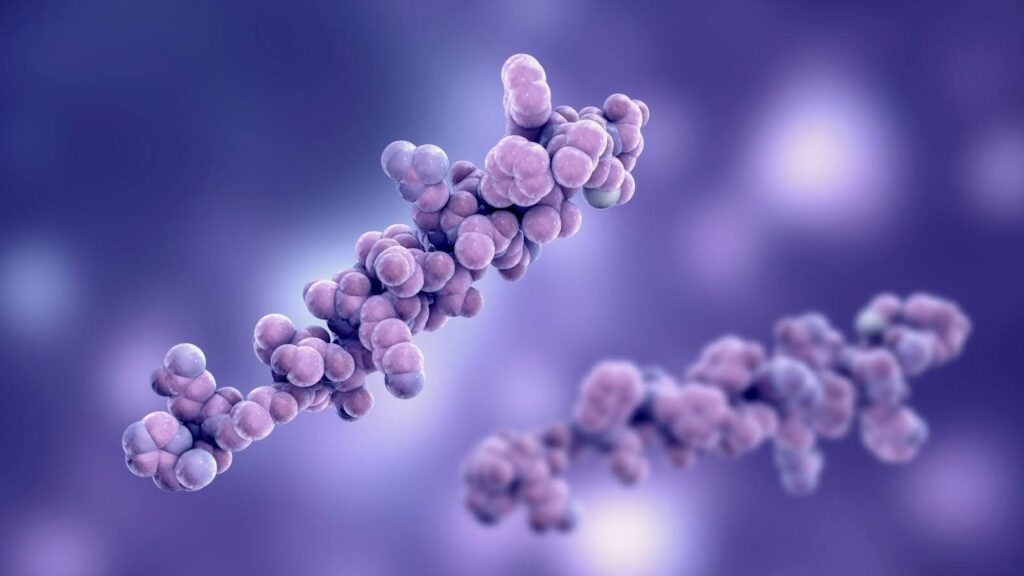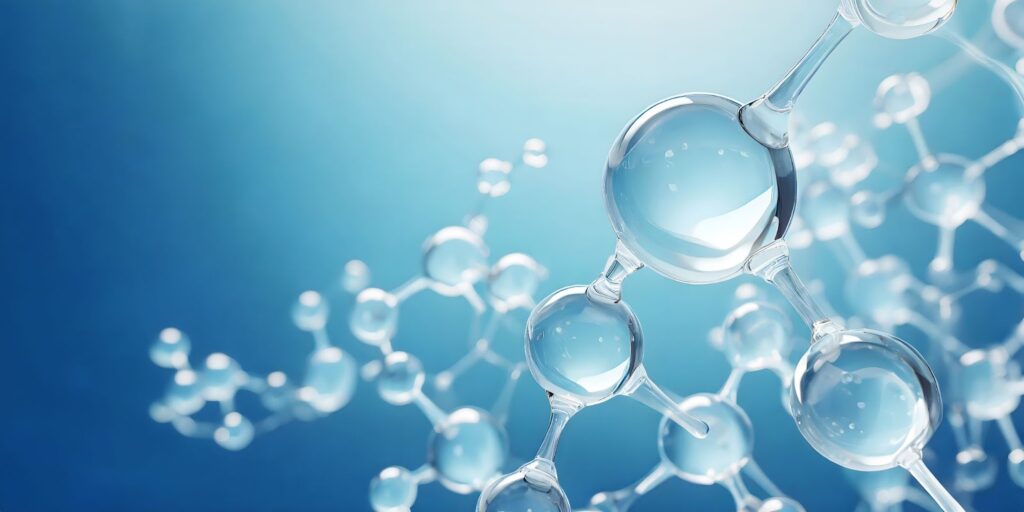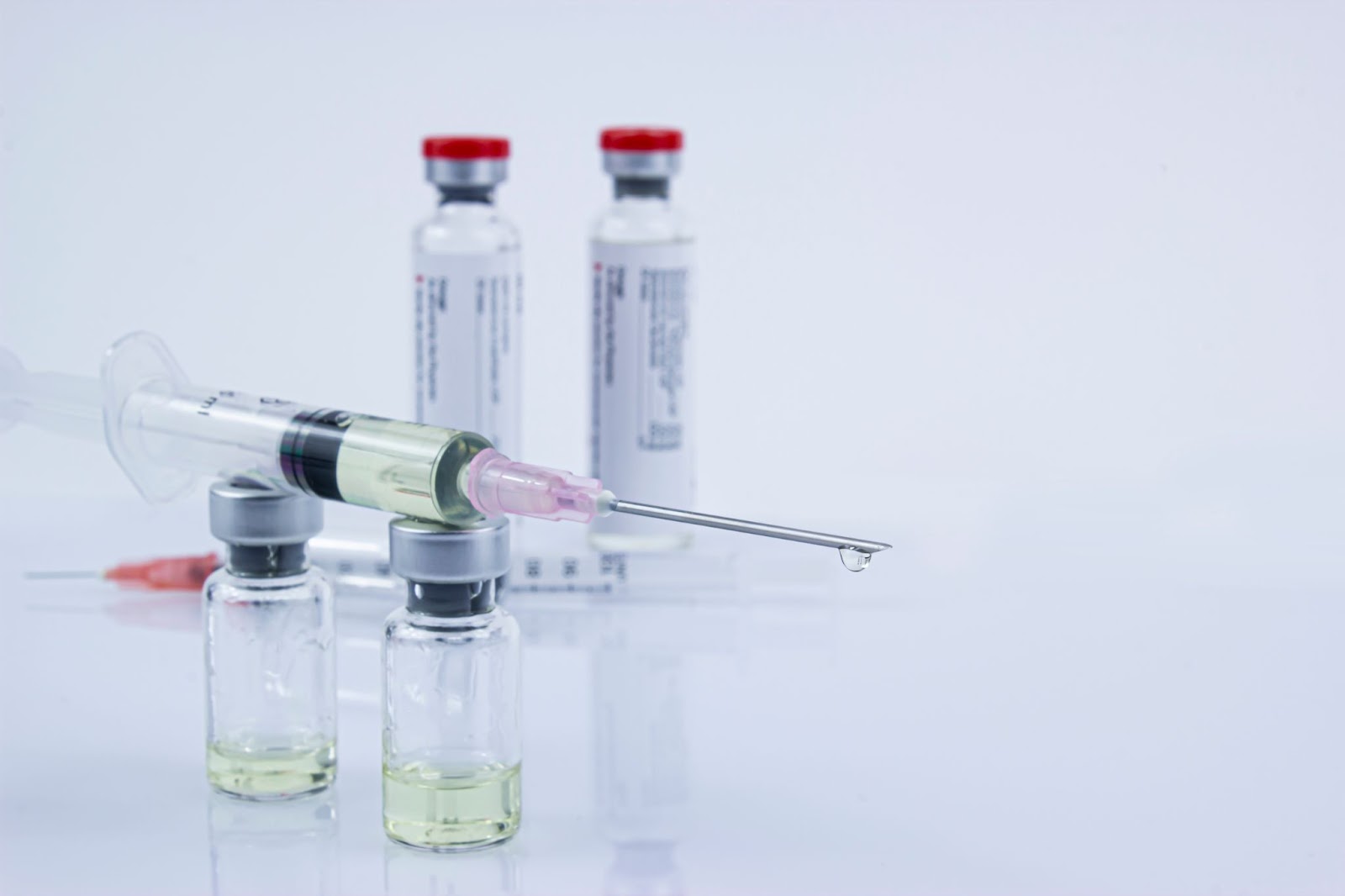Fat loss isn’t always about eating less or exercising more — sometimes your body needs help working smarter, not harder. That’s where peptide therapy comes in.
Backed by science and used in medical settings, peptides for fat loss target the root of weight gain by supporting hormone balance, boosting metabolism, and enhancing the body’s natural fat-burning processes.
If you’ve been stuck in a cycle of restrictive dieting and frustrating plateaus, peptide weight loss therapy could offer a smarter, more sustainable path forward.
In this guide, we’ll explain peptides, how they work, the most effective peptides for fat loss, potential side effects, and how to start a plan that’s right for you.
Whether you’re new to peptides or exploring your next step in medical weight loss, this blog will give you the knowledge you need to make informed, confident choices.
What are peptides?
Peptides are short chains of amino acids, the basic building blocks of proteins. While proteins are made up of long, complex chains, peptides are smaller and more specific in function. They act as signaling molecules in the body, helping cells communicate and triggering key biological processes.
Peptides naturally occur in the body and play a vital role in many systems, including hormone regulation, immune response, digestion, inflammation, and tissue repair. Because of their targeted actions, you can synthesize peptides for use in clinical settings to support or enhance certain functions.
In peptide therapy, these lab-created peptides mimic the body’s natural ones. Depending on their structure and purpose, peptides can interact with specific receptors and influence how your body responds — whether that’s speeding up healing, stimulating hormone release, or regulating metabolism.
We use peptides in various areas of medicine, including endocrinology, dermatology, and regenerative health. Their precision and versatility make them valuable tools for targeted treatment.
How do peptides help with fat loss?
Peptides play a direct role in how your body stores and burns fat. In peptide weight loss therapy, specific peptides trigger biological responses that support fat breakdown, boost metabolism, and preserve lean muscle, making them powerful tools for targeted fat reduction.
Certain peptides work by stimulating the release of growth hormone, which helps your body use fat for energy instead of storing it. This process, called lipolysis, breaks down fat cells, especially in areas where stubborn fat tends to collect, like the abdomen or thighs.
Other peptides improve insulin sensitivity, stabilizing blood sugar and reducing fat storage. When your insulin response is more efficient, your body is less likely to convert extra calories into fat. Some peptides also help control appetite, making it easier to stick to a healthy eating plan without feeling deprived.
In short, peptides for fat loss support weight reduction on multiple levels:
- Boosting metabolism
- Increasing fat oxidation
- Preserving muscle during calorie deficits
- Enhancing energy and recovery
When used under medical guidance, peptide therapy can help reset your body’s metabolic processes and improve how it responds to food, exercise, and rest, creating a stronger foundation for long-term weight loss.

What are the most effective peptides for fat loss?
Certain peptides for fat loss stand out for their effectiveness in boosting metabolism, reducing fat storage, and preserving lean muscle. We commonly use these peptides for weight loss therapy as part of a personalized plan to support long-term fat reduction.
Here are some of the most effective options:
CJC-1295 + Ipamorelin
This powerful combination stimulates the release of growth hormone and IGF-1 (insulin-like growth factor). Together, they promote fat burning, enhance recovery, and improve sleep — all supporting a leaner body composition.
CJC-1295 increases the duration of growth hormone release, while Ipamorelin triggers the release without increasing cortisol or other unwanted hormones. This combo is a cornerstone of many peptide therapy plans for fat loss.
Tesamorelin
Originally developed to reduce abdominal fat in HIV patients, Tesamorelin is now widely used to target visceral fat, especially around the midsection. It works by stimulating growth hormone release and improving lipid metabolism. Tesamorelin is ideal for people who struggle with stubborn belly fat that doesn’t respond to diet or exercise alone.
AOD 9604
A fragment of the human growth hormone molecule, AOD 9604, is specifically engineered to stimulate fat breakdown without affecting blood sugar or growth hormone levels. It helps accelerate lipolysis (the breakdown of fat) while preventing lipogenesis (the formation of new fat). AOD 9604 is one of the safest and most targeted peptides in peptide weight loss therapy.
5-Amino-1MQ
This peptide targets an enzyme that limits energy production and encourages fat storage. By blocking it, 5-Amino-1MQ increases cellular metabolism, helping your body burn more fat and create lean muscle more efficiently. It’s especially helpful for people with slow metabolisms or weight loss resistance.
Are there side effects?
While peptide therapy is generally well-tolerated and considered safe when supervised by a qualified provider, it’s important to understand that any treatment — even natural or bio-identical — can come with side effects. These are usually mild and temporary but vary depending on the specific peptides for fat loss, dosage, and individual response.
These are the most commonly reported side effects of peptide weight loss therapy:
- Injection site reactions: Redness, swelling, or mild discomfort where the peptide is injected. These typically resolve on their own.
- Water retention or bloating: Some peptides that stimulate growth hormone may cause mild fluid retention.
- Increased appetite: While some peptides curb hunger, others — especially growth hormone secretagogues — may trigger brief periods of increased appetite.
- Fatigue or drowsiness: Peptides that influence metabolic or sleep cycles might cause daytime tiredness when your body is adjusting.
- Headaches or dizziness: Rare but possible in the early stages of therapy.
- Joint stiffness or pain: This is usually mild and improves over time as the body adjusts.
It’s also important to mention that unsupervised or improperly dosed peptide therapy increases the risk of adverse effects. That’s why medical guidance is essential — your provider will tailor your dosing, monitor your progress, and make adjustments as needed to ensure safe and effective results.
Used correctly, peptide weight loss therapy is a targeted, low-risk tool for fat loss and metabolic support. But like any medical treatment, it’s not one-size-fits-all. A responsible, guided approach makes all the difference.

Getting started with peptide weight loss therapy at High West Medical
If you’re struggling to lose fat despite your best efforts, peptide weight loss therapy may be the missing link. At High West Medical, we take a personalized, medically guided approach to help you reach your goals safely and effectively.
Whether you’re curious about peptides for fat loss or want to reset your metabolism with expert support, our team is here to help you every step of the way.
Contact High West Medical today to schedule your consultation and learn how peptide therapy can support fat loss, boost energy, and restore confidence naturally and sustainably.





